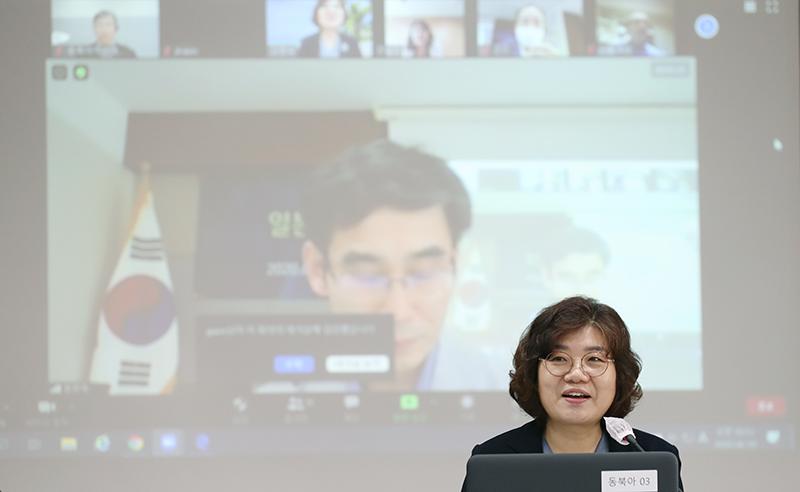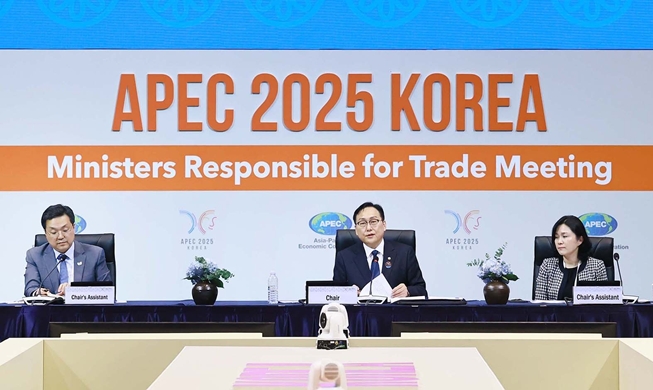
A seminar via videoconferencing on an exhibition displaying the industrial sites of Japan's Meiji Restoration at the Industrial Heritage Information Centre in Tokyo on June 19 is held at the Northeast Asian History Foundation in Seoul. (Jeon Han)
By Lee Kyoung Mi and Lee Hana
Photos = Jeon Han
Seoul | June 19, 2020
Korean and Japanese experts have urged the Japanese government to honor its pledge to the world amid the controversy over the newly opened Industrial Heritage Information Centre in Tokyo denying Japan's history of forced labor.
Hisamoto Kobayashi, an administrator at the Network for Research on Forced Labor Mobilization, on June 19 said, "The Japanese government must uphold its pledge to the international community, and we need to request that changes be made to the exhibition."
He was speaking at a seminar in Seoul organized by the Northeast Asian History Foundation to review an exhibition hosted by the center that denies Japan's role in forced labor.
"It looks like this Industrial Heritage Information Centre will play a central role in fabricating and distorting Japanese history," he said.
Sharing reports from the National Congress of Industrial Heritage that runs the center, Kobayashi said, "It's embarrassing that they're trying to close the case by presenting only the unilateral views of the Japanese government without talking to the victims' side."
The seminar, held via videoconferencing, saw the participation of Kobayashi, Mitsunobu Nakata, head of the Network for Research on Forced Labor Mobilization, Kim Min Chul, a researcher at the Center for Historical Truth and Justice, and Jeon Jinsung, director of the Division of Culture, Bureau of Science and Culture at the Korean National Commission for UNESCO.

Kim Hyun Sook, director-general of the Northeast Asian History Foundation, on June 19 delivers a speech to a seminar on the historical inaccuracy of an exhibition displaying the industrial sites of Japan's Meiji Restoration at the Industrial Heritage Information Centre in Tokyo.
Kim Hyun Sook, director-general of the history foundation, said, "Japan promised to acknowledge that it used forced laborers and follow up with measures honoring these victims, but sadly, the newly opened exhibition has no information on this fact."
"A historical truth doesn't disappear just because you ignore it, the debt is just transferred to future generations."
Nakata said, "The content of the recent exhibition is all nonsense. This measure completely disregards Japan's promise to the international community, but the Japanese media has no news of it. We'll try to deliver these points directly to the Japanese government to resolve this issue."
During the seminar, the panel said the issue should be tackled by encouraging global participation and agreement rather than making it a nationalist agenda.
The Japanese government on June 15 opened an exhibition at the center featuring testimony that claims no discrimination against Koreans was committed on Hashima Island.
Despite a pledge made on July 5, 2015, to the World Heritage Committee to admit that Japan forced many people to perform labor and violated their human rights, the Japanese government chose to showcase an exhibition breaking this pledge by denying this history.
km137426@korea.kr
